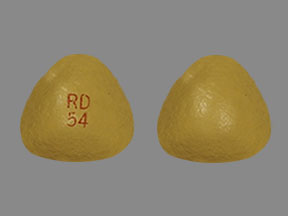My prescription
Edit
2MG, Sirolimus (90 Tablets)
Select pharmacy

CVS
$124.20
COUPON PRICE
Albertsons
$370.99
COUPON PRICE
Walgreens
$490.50
COUPON PRICE
Walmart
$1603.04
COUPON PRICESirolimus savings card
Show this card to your pharmacist
CVS
$124.20
BIN
ID
PCN
GRP
019876
LH5FB2DE48
CHIPPO
LHX
Powered by
More prescriptions for organ transplant
More prescriptions for organ transplant
Price history for Hyftor (brand) & Sirolimus (generic)
90 Tablets, 2MG
Average retail price for Hyftor
Average retail price for Sirolimus
Average SaveHealth price for Sirolimus
Our price history data is based on aggregated prescription data collected from participating pharmacies in America. Our prescription data updates daily to reflect the latest price changes. If you notice a missing data point, it means there wasn't sufficient data available to generate a monetary value for that date.
We analyzed Sirolimus prices for (2MG, 90 Tablets) over the last 12 months. The average retail price was $607.52, while the average price using the SaveHealth discount card was $245.02. That's a savings of approximately 59.67% when using our Sirolimus coupon.
Compared to the generic version, Hyftor had an average price of $2424.09 over the same time period. With the SaveHealth savings card, Sirolimus is 89.89% cheaper on average than Hyftor.
*Retail prices are based on pharmacy claims data, and may not be accurate when we don't have enough claims.
Sirolimus dosage forms
Dosage Quantity Price from Per unit 0.5MG 90 Tablets $81.34 $0.90 0.5MG 100 Tablets $87.46 $0.88 1MG 1 Tablet $10.43 $10.43 1MG 30 Tablets $31.58 $1.05 1MG 90 Tablets $66.15 $0.73 1MG 100 Tablets $70.58 $0.71 2MG 90 Tablets $124.20 $1.38 2MG 100 Tablets $135.08 $1.35
| Dosage | Quantity | Price from | Per unit |
|---|---|---|---|
| 0.5MG | 90 Tablets | $81.34 | $0.90 |
| 0.5MG | 100 Tablets | $87.46 | $0.88 |
| 1MG | 1 Tablet | $10.43 | $10.43 |
| 1MG | 30 Tablets | $31.58 | $1.05 |
| 1MG | 90 Tablets | $66.15 | $0.73 |
| 1MG | 100 Tablets | $70.58 | $0.71 |
| 2MG | 90 Tablets | $124.20 | $1.38 |
| 2MG | 100 Tablets | $135.08 | $1.35 |

